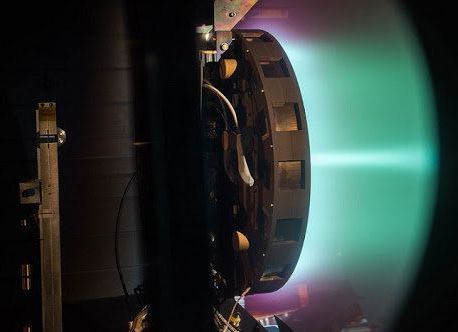X3 is a powerful ion thruster that could one day propel humans beyond Earth. The thruster was successfully tested few months ago, and could be selected by NASA as a crucial component of propulsion system for future Mars missions.
X3 is a Hall-effect thruster—a type of ion thruster in which the propellant (most commonly xenon) is accelerated by electric and magnetic fields. Such thrusters are safer and more fuel efficient than engines used in traditional chemical rockets. However, they currently offer relatively low thrust and acceleration. Therefore, engineers are still working to make them more powerful.
Nearly 31.5 inches (80 centimeters) in diameter and weighing around 507 lbs. (230 kilograms), X3 is a three-channel nested thruster designed to operate at power levels up to 200 kW. The thruster is jointly developed by the University of Michigan (U-M), NASA and the U.S. Air Force. The project is funded through NASA’s Next Space Technologies for Exploration Partnership (NextSTEP).







